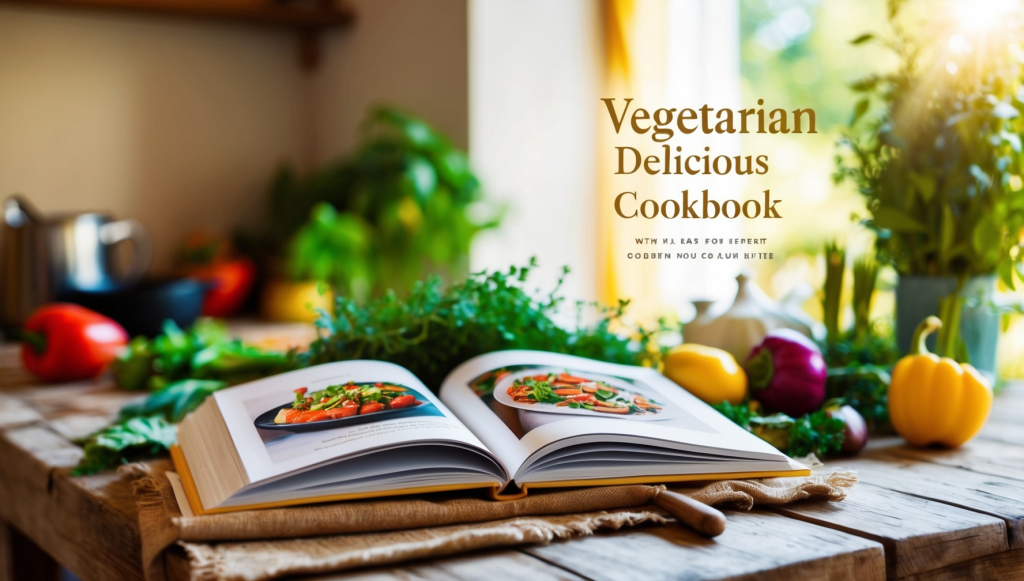Do Vegetarians Eat Cheese? Understanding the Nuances
The question of whether vegetarians eat cheese is a complex one, rooted in the diverse definitions of vegetarianism and the ethical considerations surrounding dairy production. While many vegetarians do include cheese in their diets, the decision often depends on personal beliefs about animal welfare and the specific types of cheese consumed.
Types of Vegetarians and Cheese Consumption
When it comes to dietary choices, vegetarianism encompasses a wide range of practices, each with its own set of guidelines regarding food consumption. One of the most debated topics within vegetarian diets is the inclusion of cheese, particularly due to the varying definitions of vegetarianism. Understanding the different types of vegetarians can help clarify their stance on cheese consumption.
Lacto-Vegetarians
Lacto-vegetarians are individuals who include dairy products, such as cheese, in their diets but avoid meat and eggs. For this group, cheese is typically viewed as a valuable source of protein and calcium. Since lacto-vegetarians do not consume meat, dairy products can help meet their nutritional needs without involving the slaughter of animals.
Cheese provides various health benefits, including calcium, essential for bone health, and protein, which is crucial for muscle maintenance and overall bodily function. Many lacto-vegetarians appreciate the versatility of cheese, using it in various dishes, from pasta and salads to pizzas and snacks. The ability to enjoy a wide range of cheeses, such as mozzarella, cheddar, and feta, allows lacto-vegetarians to maintain a diverse and flavorful diet while adhering to their ethical and dietary choices.
Lacto-Ovo Vegetarians
Lacto-ovo vegetarians share many similarities with lacto-vegetarians but take their dietary practices a step further by including eggs as well as dairy products. This group embraces both cheese and eggs, making it easier for them to meet their nutritional needs.
The inclusion of both dairy and eggs allows lacto-ovo vegetarians to enjoy a rich variety of foods and recipes. Cheese plays an essential role in their diets, providing important nutrients such as vitamin B12, which is primarily found in animal products. Lacto-ovo vegetarians often incorporate cheese into breakfast dishes, like omelets and frittatas, as well as lunch and dinner options, enhancing flavors and textures in meals.
Vegans
In stark contrast to lacto-vegetarians and lacto-ovo vegetarians, vegans avoid all animal products, including dairy. For vegans, cheese made from animal milk is not considered part of their diet due to ethical concerns regarding animal exploitation in dairy farming. Many vegans advocate for animal rights and believe that the dairy industry is inherently cruel, as it often involves practices that lead to the suffering of animals.
To replace traditional cheese, the vegan community has developed a variety of plant-based cheese alternatives made from ingredients like nuts, soy, coconut, and nutritional yeast. These alternatives aim to replicate the flavors and textures of dairy cheese while aligning with vegan principles. With an increasing demand for vegan products, many brands offer a range of options, from creamy spreads to hard cheeses, allowing vegans to enjoy cheese-like experiences without compromising their values.
Understanding the differences between lacto-vegetarians, lacto-ovo vegetarians, and vegans sheds light on the diverse approaches to cheese consumption within the vegetarian community. Each group has its unique reasons for including or excluding cheese, reflecting their dietary preferences and ethical beliefs. Whether embracing dairy for its nutritional benefits or opting for plant-based alternatives, there are plenty of delicious options available for everyone on their vegetarian journey.
The Rennet Dilemma
A significant factor influencing whether vegetarians choose to eat cheese revolves around the ingredient known as rennet. Rennet is an enzyme traditionally derived from the stomach lining of young calves and is commonly used in cheesemaking to curdle milk. Since this process involves animal byproducts, many vegetarians may feel uncomfortable consuming cheeses that contain rennet.
- Cheeses Typically Containing Rennet: Hard cheeses like Parmesan, Pecorino Romano, and Gorgonzola often use animal-derived rennet. These cheeses are generally not considered vegetarian-friendly.
- Vegetarian-Friendly Cheeses: Softer cheeses such as ricotta, paneer, and cream cheese are often made without rennet, using acids like vinegar or lemon juice instead to curdle milk. Additionally, some cheesemakers produce cheeses using plant-based rennet or microbial enzymes, which are suitable for vegetarians.
Navigating Cheese Choices

Cheese can be a delightful addition to a vegetarian diet, offering a range of flavors and textures that enhance various dishes. However, for those adhering to vegetarian principles, choosing the right cheese requires careful consideration. The presence of rennet, an enzyme traditionally derived from the stomach lining of animals, is a primary concern for many vegetarians. To ensure that your cheese choices align with your dietary preferences, it’s essential to read labels and understand the options available.
Look for Plant-Based Rennet
When shopping for cheese, one of the most important factors to consider is the type of rennet used in its production. Many brands now specify on their packaging whether they use vegetarian or microbial rennet. Vegetarian rennet is derived from plants or fungi and is suitable for those avoiding animal products. Keywords to look for include “vegetarian rennet,” “plant-based enzymes,” or “microbial rennet.” Familiarizing yourself with these terms can help you make informed decisions about which cheeses fit your dietary choices.

Check for Kosher Certification
Another way to ensure that the cheese you’re considering is vegetarian-friendly is to check for kosher certification. Kosher cheeses often do not contain animal rennet due to dietary laws that prohibit the mixing of meat and dairy. Look for the “OU” symbol or other reputable kosher certifications on packaging. While not all kosher cheeses are vegetarian, many adhere to stricter ingredient standards, making them a safer choice for those concerned about animal-derived ingredients.
Choose Softer Cheeses

Softer cheeses are generally less likely to contain rennet compared to harder varieties. Cheeses such as ricotta, cream cheese, and fresh mozzarella are often made without rennet or use plant-based alternatives. These cheeses can be a safer choice for vegetarians looking to enjoy creamy textures without compromising their dietary principles. When selecting softer cheeses, it’s still important to read labels carefully, as manufacturing practices can vary between brands.
Explore Vegan Cheese Alternatives

For those who wish to avoid all dairy products, a plethora of vegan cheese alternatives are now available. Made from ingredients such as nuts, soy, coconut, or nutritional yeast, these options provide similar flavors and textures without the ethical concerns associated with traditional cheese. Vegan cheeses come in a variety of forms, from spreadable creams to block cheeses, making it easy to find a suitable alternative for any dish. Many brands also strive to create products that mimic the melting and flavor profiles of dairy cheese, allowing for versatility in cooking and baking.
When trying vegan cheese alternatives, it’s beneficial to sample different brands and types to find those that best suit your palate. Some may have distinct tastes and textures that differ from traditional cheese, so exploring a range of options can lead to delightful culinary discoveries.
Pairing Cheese with Plant-Based Foods

Once you’ve made your cheese selections, consider how to incorporate them into your meals. Cheese can complement various plant-based ingredients, enhancing flavors and textures in salads, pasta dishes, and sandwiches. Fresh mozzarella paired with ripe tomatoes and basil creates a classic caprese salad, while a sprinkle of feta on roasted vegetables adds a tangy finish.
For a cozy evening, consider creating a charcuterie board featuring your favorite cheeses alongside a variety of fruits, nuts, and spreads. This allows you to experiment with different combinations and discover how cheese can elevate plant-based dishes.
As you navigate the world of cheese choices, remember that enjoying this versatile ingredient is possible while adhering to vegetarian principles. By being mindful of the types of rennet used, seeking out kosher certifications, opting for softer cheeses, and exploring vegan alternatives, you can savor the rich flavors and textures of cheese without compromising your dietary values.
Whether vegetarians eat cheese largely depends on individual beliefs about animal welfare and the specific types of cheese consumed. While many lacto-vegetarians include cheese in their diets without hesitation, others may choose to avoid it due to concerns about rennet and its origins. By understanding the nuances of cheese production and making informed choices, vegetarians can navigate their dietary preferences while aligning with their ethical values.
Finding Cheese Alternatives with a Vegetarian Cookbook

Navigating the world of cheese alternatives can be challenging, especially for those following a vegetarian or vegan diet. However, a well-crafted vegetarian cookbook can be an invaluable resource in discovering delicious substitutes that align with your dietary choices.
Many cookbooks offer comprehensive sections dedicated to plant-based ingredients, including various cheese alternatives made from nuts, soy, and other plant-based sources. These recipes often include tips on how to replicate the flavors and textures of traditional cheeses, enabling you to enjoy familiar dishes without compromising your values.
In addition to providing recipes, a vegetarian cookbook can also offer guidance on pairing these alternatives with other ingredients, enhancing your meals’ overall taste. Whether you’re looking for creamy spreads, tangy cheeses, or meltable options, a good cookbook can inspire creativity in the kitchen and help you confidently explore new culinary possibilities.
By incorporating a vegetarian cookbook into your cooking routine, you can easily find the right cheese alternatives that suit your preferences, making your plant-based journey both enjoyable and satisfying.












